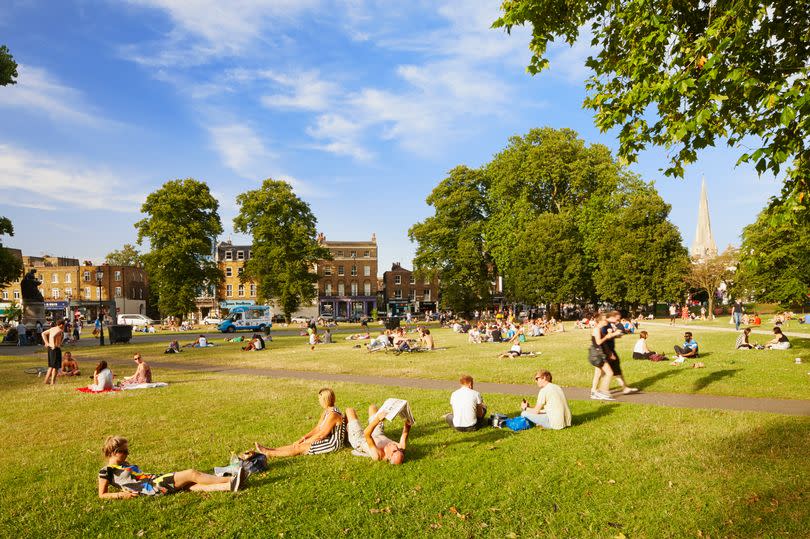NHS doctor reveals why British heat feels more intense than overseas

An NHS doctor has given a logical explanation as to why the UK feels hotter than other places under the same sun. If you've ever felt the heat abroad, you'll know that 25C feels very different from 25C in the UK. While Brits are notorious for moaning about the weather, there might be some truth behind their complaints.
Dr Karan Raj, also known as @dr. karanr on TikTok, asked the question: "Why does the heat in the UK feel even hotter than when you're abroad? " He joked that we love to grumble about everything, including the weather, but said there are "a few rational explanations for this temperature perception glitch".
Firstly, he says it's all about relative humidity. He explains: "This is the amount of moisture in the air compared to the maximum amount of moisture the air can hold at that temperature."
Read more: Dunelm 'gorgeous' summer bedding fans say 'instantly brightens up room' now £11 in sale
Read next: Antler launch huge 20 per cent off sale including Jet2 and easyJet-approved cabin bags
"In the UK, the relative humidity is higher than in countries with dry heat. This makes it harder for our bodies to cool down because sweat doesn't evaporate as well. So you feel hot and sticky like a roast barbecue pig. This is why 35C in a dry climate can feel more comfortable than 25C in a place with high relative humidity.", reports the Mirror.
He added that our infrastructure was another factor. He said: "In the UK the buildings are designed to retain heat because the weather is usually cold, soggy and silly."
"The same insulation that helps save energy in the winter makes buildings a greenhouse in the summer, especially without air conditioning which most UK homes don't have."
"In contrast, buildings in warmer climates are designed to stay cool. Thick walls and large windows sometimes even with window shutters and coloured coatings on the buildings to deflect heat."
Tips for coping in hot weather.
The NHS advises avoiding heat exposure when possible. If you must go outside, seek shade during peak sun hours from 11am to 3pm, wear sunscreen, a hat, and light clothes, and avoid activities that raise your body temperature.
Keep cool by eating cold dishes and drinking cool beverages, avoid alcohol, caffeine, and hot says the NHS. You should also take cool showers or dampen your skin or clothes with cool water.
They also recommend keeping your home cool. Close windows during the hottest parts of the day and open them at night when it's cooler.
Use fans when temperatures are below 35 degrees Celsius and keep track of the number in rooms, particularly those where vulnerable people spend time.
What are the signs and symptoms of heat exhaustion?
The signs of heat exhaustion include:
tiredness
dizziness
headache
feeling sick or being sick
excessive sweating and skin becoming pale and clammy or getting a heat rash, but a change in skin colour can be harder to see on brown and black skin
cramps in the arms, legs and stomach
fast breathing or heartbeat
a high temperature
being very thirsty
weakness

 Yahoo News
Yahoo News 
